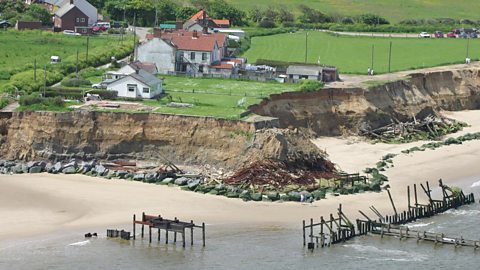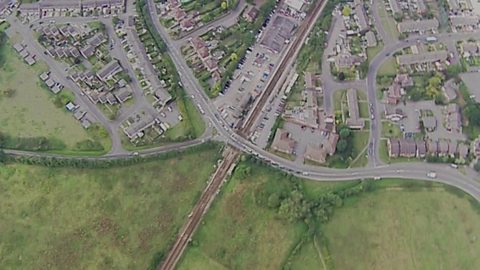Jack: I’m Jack and I live in Gateshead. As a teenager and I hate traffic. First of all it’s so boring just sitting there for hours and second of all it’s terrible for your health.
Jack: Cars release particles of air pollution through their exhausts which affects the air that we breath. More traffic means more pollution which means worse air which is an increasing worry in Newcastle-upon-Tyne, my nearest city. So how do we stop this problem?
Jack: I think the best way to stop it is a congestion charge. It worked in cities like London and more locally Durham so why wouldn’t it work in Newcastle.
Jack: A congestion charge makes drivers pay a fee to bring their cars into the city at busy times of the day. In cities like London it’s reduced the number of cars driving in to the city centre. And as Newcastle is the third most congested city in the country I’m hoping it will have the same effect.
Jack: I’m on my way to find out more about it and why it would work or it wouldn’t work.Congestion. Is congestion charging the best way to reduce traffic pollution?
Jack: I’ve come to Heaton two miles from Newcastle centre. It’s one of the city’s most congested areas. So it’s a good place to find out how much the city’s air really is affected by traffic fumes.
Jack: Hello.
Aare Puussaar: Hello.
Jack: I’ve come to meet Aare from Newcastle’s university who uses these special monitors to measure air pollution levels.
Aare Puussaar: I’ve been handing these out to local communities for them to find out what’s the air pollution in their area.
Jack: So I’m going to use Aare’s monitor to collect air pollution samples with Julie, a local doctor. I’ll look at the results with Aare.Why are we so worried about this road?
Julie Whittaker: Well because it’s one of the busiest roads in Heaton. And there’s a primary school here that’s right on the edge of the road. So you’ve got lots of kids.
Jack: It’s just two seconds up the road and you can already smell like the fumes from the cars.
Jack: I’ve been researching into the London and the Durham congestion charges. So do you think it would work in areas like this next to primary schools?
Julie Whittaker: Yeah, I think it would. And for people like me I think there’s nothing like a bit of a penalty to make you change your behaviour.
Jack: Time to find out what the other side think. Great, I’ve got a meeting with Stephen, a local businessman to find out why he thinks a congestion charge isn’t a solution.
Stephen Patterson: Hi Jack. Nice to meet you.
Jack: How do you think people would react if just the congestion charge would be added into Newcastle?
Stephen Patterson: I think it would be a negative thing. People feel as if they’re getting taxed simply for coming in to the city centre. And we want more people to use it. We want businesses to be investing in the city centre, employing people.
Jack: I’ve just had a really good chat with Stephen about the congestion charge and his main points were it wouldn’t really work. But I think I need to know a bit more about congestion charge and why it wouldn’t work before I can make my final decision.So I’m going to meet up with Aare again.
Aare Puussaar: Hey.
Jack: Hello.
Aare Puussaar: Nice to see you again.
Jack: Nice to see you.
Aare Puussaar: Let’s see the data. So this is the map of the area we were in.
Jack: So these big red ones over here. What do they mean?
Aare Puussaar: It’s red, it means that it’s high amount of particles. And then the sizes as well correlate to is it small amount of particles or high amount of particles. And there are legal limits of how high the particle count can be.
Jack:The results in here are similar to the rest of Newcastle showing high pollution levels. In fact over 1,000 deaths each year in the North East of England are caused by air pollution.
Jack: So I’ve just had a chat with Aare and I’m actually quite surprised at how much pollution there actually was in here. But I still feel like I need that little bit extra information. So I’m going to go and speak to the council and see what their ideas are.
Jack: Hello.
Jack: As director of public health for the city council Eugene is the perfect person to tell me about the council’s view on tackling pollution in the city.
Jack: There’s been talks of a congestion charge and would you think that will be a good idea or a bad idea in Newcastle?
Eugene Milne: Well one of the things we know is if we don’t manage to get the levels of nitrogen dioxide down and we don’t manage to do that through other means then we have to introduce a congestion charge. I think we prefer not to have to. We’d like to use other ways of doing that.
Eugene Milne: But there are various things we can do but ultimately the one that’s going to matter most is getting people to use different kinds of transport. Because that not only benefits people in terms of reducing congestion and making it easier to get around, it also reduces the air pollution. It makes people walk more and reduces obesity. It gets them fitter at the same time.
Jack: So do you think we can change our habits and improve the congestion in Newcastle and surrounding areas?
Eugene Milne: Changing people’s habits and behaviours is one of the most difficult things that anybody could try and do. But I think there’s real will to do it. And I think people understand now in a way that they didn’t a few years ago the damage that’s being done by pollution from vehicles in the city.
Jack: So I’ve just spoken to Julie, the congestion charge felt like the right thing to happen. But then after speaking to Stephen and Eugene they’ve really changed my opinion. And they made us think about different alternatives like cycling or walking in to school.
Jack: I don’t think the congestion charging is the answer of reducing pollution. It’s much more important to change people’s habits and get them to use other forms of transport like my bike.
Jack, a student from Gateshead on Tyneside, investigates solutions to traffic related air pollution, which is a particular problem in Newcastle.
Jack wants to know if a congestion charge would solve the problem of air pollution and talks to people on both sides of the argument.
He speaks to a local resident, an environmental researcher from the University of Newcastle who measures traffic pollution levels, a local GP, a local businessman and the Newcastle City Council’s Director of Public Health.
After listening to the arguments, Jack makes up his mind on the best option.
This clip is from the series Geography: The Big Issues
Teacher Notes
This could be used to set up a fieldwork investigation using GIS to collect and interpret data.
Students could be asked to gather data on their way to and from school and upload this into a GIS collector.
In class, students could interrogate their data and identify areas in their local area that have similar pollution problems.
Students could research solutions and present their findings and proposals.
Curriculum Notes
This clip will be relevant for teaching Geography at Key Stage 3 and 4 in England and Northern Ireland and 3rd and 4th Level in Scotland.
More from the series Geography: The Big Issues
Geography KS3/4: Coastal Erosion. video
A student investigates whether we should protect properties being affected by coastal erosion.

Geography KS3/4: Rewilding. video
A student investigates the pros and cons of rewilding, looking at moves to reintroduce the lynx to Kielder Forest.

Geography KS3/4: Using the greenbelt. video
A student investigates the pros and cons of building on the greenbelt.
